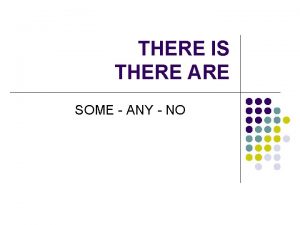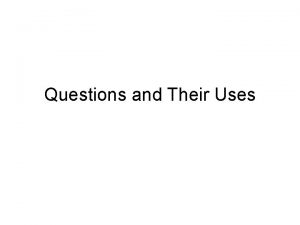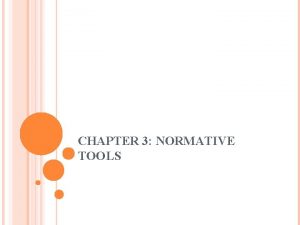A NORMATIVE APPROACH TO THE DESIGN OF ANY


- Slides: 2

A NORMATIVE APPROACH TO THE DESIGN OF ANY GOVERNMENT Copyright © Norman Strauss 2004, 2005 TEL. 020 8744 9944 ns@c-p-s. co. uk nstrausss@btinternet. com F. Y A TE G B IN PO RU ET L W IN M E I A R G P NI D B A ST V R R E IS O T R a ER KE Y S S RS ST A R C LA b E. D OUR WAY OF LIFE ETHOS® S , A D 1. POLICY FORMATION & EXECUTION "RULES" D H C O ( UOSW WE d “S M vs. DIF PE THEMFER O Y F S F TI ) TR OR T N AD CE E ET E S M NG PA W -O , ID S" R OR FF EA TI K S E S , S, R S IE S D EL M IV IN ER Y Ethos Management ® 1. Ethos® Audit 2. Ethos Contract® 3. Ethos Reflex® A C 1. STATUS QUO vs. PRECEDENT vs. INNOVATION & A 1. PURPOSE vs. ETHICS vs. RELEVANCE W c N E vs UT R. vs ME AL. R C vs WI IT IVI vs. E LL vs. L S P E. F v vs IN FIC s. C AS RV T. vs QU EG IEN LIQ SIO ICE. C A R C U N O LIT ITY Y ES ST Y S PUBLIC OPINION vs. PRESSURE GROUPS vs. PLURALISM vs. SCHOLARSHIP vs. DOCTRINE vs. VISION vs. STORIES vs. ICONS vs. INHERITANCE vs. STEADY AS WE GO vs. ONE MORE HEAVE… m ro ts k f pac c ba Im ed s am Fe Etho iagr D E. R O G W O C P O A LO N - D U R S G RT LI RD TA A , A S TE N C M G R E B or ON NT O M IE U O S N B & H. EVOLUTIONARY IMPERATIVES C e STRUCTURES, STANDARDS, NORMS, BEHAVIOURS, TIPPING POINTS. B 1. NEW REALITIES, CHANGE & LEARNING PROCESSES vs. PAST DRIVERS OF FAITH & BELIEF MONARCHY vs. REPUBLIC vs. AUTOCRACY vs. JUNTA vs. OCHLOCRACY vs. THEOCRACY vs. DICTATORSHIP vs. TYRANNY vs. ? ? (BASIS OF LEGITIMACY & EMPOWERMENT) Governing system. . COMPETING FORCES BEYOND OUR ‘CONTROL’ vs. TERROR vs. DIPLOMACY vs. MULTI-DISCIPLINARY STUDY vs. COMPLEX ADAPTIVE SYSTEMS vs. DISASTERS vs. WAR vs. INTELLIGENCE vs. FUTURE-SENSORS vs. META-THINKING vs. SPIN vs. SCENARIOS vs. IMAGINATION vs. PATTERN RECOGNITION vs. DEBATE E. C. CONSTITUTIONAL, INSTITUTIONAL, HISTORICAL & OPERATIONAL PATHWAYS INFLUENCES, ISSUES, DESIRES, CONCERNS, PRINCIPLES. EXTERNALITIES, REGIONS, PRESSURES, EVENTS, DISRUPTIONS, SECURITY & CONTINGENCIES A. POLITICAL, PHILOSOPHICAL & LEADERSHIP PARADIGMS m fro cts k a ac p db s Im m e a Fe Etho iagr D E. os n y. rp tio nc Pu ec ace e. of Dir pl Fat e. ity of om it. nc ar e. C ce de Cl ns ion De eca ce Se nfus eit. . D eten o nc sm p. C o ati m vs s. C efe Inco v D. . vs vs G. ERA VALUES & ZEITGEIST B. GEO-POLITICAL CONTEXT: F. D. OPTION GENERATION, PRIORITIES, ADAPTATION & DECISION-MAKING : KNOWLEDGE, SKILLS, COMPETENCES vs. OPERATING CULTURES vs. MOULD-BREAKING ORIGINALITY vs. RECEIVED WISDOM & PRACTICES vs. BUREAUCRACY vs. EXPERIENCE vs. STRATEGIC BANDWIDTH vs. JUDGEMENT vs. CHALLENGES vs. CONFIDENCE vs. TURBULENCE

E. THE MULTIPLE ETHOS IMPACTS… ETHOS® AFFECTS OUR HISTORY & WAY OF LIFE E. Our myths, civic pride, morale, heritage, symbols & traditions vs. our openness to change. ETHOS® BOTH IMPACTS ON & IS REFLECTED BY: CITIZENS, CIVILITY, CULTURE, MEDIA, MINDSET, SOCIETY & WELL-BEING. CONSTITUTIONAL EMPOWERMENT® SETS OUR NATION’S LIMITS… 1. E 1. PAST - Who we were; what we believed; our collective memories. 2. a) Our justice, freedoms, fairness, character, customs, citizenship and habits. 3. b) Which foci for discipline, restraint, cohesion vs. anxiety, withdrawal, unrest? c) What we accepted vs. really felt vs. desired vs. wanted vs. needed vs. 4. hoped for. d) What we disliked intensely; our sticking points; when / why we last 5. revolted. E 2. PRESENT - What we’re like; what we do well; what we’re bad at. e) Where our nation's brain, mind, morals, conscience, heart, soul & genius are. 6. f) What we stand for, think, aspire to, expect, understand, tolerate, fear & value. g) How we live, work, relax, learn, reflect, strengthen our resolve, participate. 7. h) Who / why / when we trust / believe / care / commit / act / contribute. 8. 9. E 3. FUTURE - What we could / should become – our Potential, Purpose & Role. i) Why we did/do/don’t/will matter in the world. j) Which destiny, identity, belief system and value system beckons? k) Where we are going - our nation's missions, journey, progress, spirit. l) Are frwe om in Transactional, Transitional or Transformational Mode? k acts c m) Will a pwe set any new standards, form / join / lead any networks? db Im m s gthere ra o n) Fee. Will be major change? Has it been tested? Is it reversible? Is h normativegov 19 for PUBLIC Et Dia it sustainable? o) Will Our Way Of Life still be or become admired, desirable, improving Government involves a variety of complex networks. Ethos is the ultimate variety reducer - Stafford Beer. Government is Ethos Management® - Norman Strauss. (The act of making sense of variety by resolving complexity, aligning policies & creating INTEGRITY. ) Good Government is a good enactment of a Good Governing System; namely, good Ethos Management® ideally judged by the governed to have INTEGRITY. Civil Service INTEGRITY cannot be divorced from a Good Governing System. Therefore it should not – as an aligned Ethos Management® Sub-System - be neutral; and thus separated from the whole. So there must be “ freely competing Civil Service” Sub. Systems, arguing their separate points of view, which collectively embed Neutrality with INTEGRITY - i. e. cover the field thoroughly from all perspectives. All competing parties need more help to do this well. Pressure groups etc. have limited, biased resources. My NET* is one option to provide a “ freely competing Civil Service” resource. Others should be sought. *See Guardian 20 Jan 1984 I. . . is this good government? Does it feel good? F. Copyright © Norman Strauss 2004, 2005 TEL. 020 8744 9944



